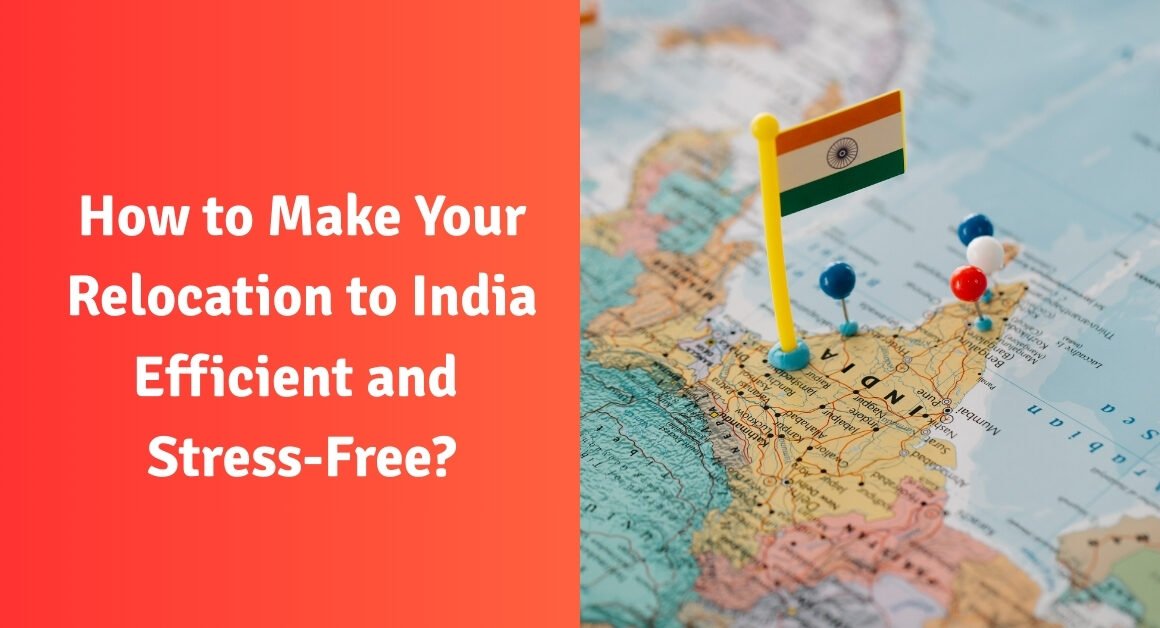Moving back to India after years of living abroad can be an exciting yet challenging experience. One of the most important aspects of this transition is managing your finances effectively. This guide will help you navigate the financial landscape as you return to India, ensuring a smooth transition for your money matters.
Plan Ahead
Start your financial planning at least 6-12 months before your move. Make a list of all your financial accounts and investments. Research the cost of living in your chosen city in India. Create a budget for your move and initial settling-in period.
Banking Arrangements
Organize your banking to ensure easy access to your funds. Keep your foreign bank account active for a few months after moving. Open a resident savings account in India. Convert your NRE/NRO accounts to resident accounts. Inform your banks about your change in residency status.
Currency Exchange
Plan your currency exchange strategy. Research the best ways to transfer large sums to India. Consider transferring money in phases to average out exchange rate fluctuations. Be aware of any restrictions on bringing foreign currency into India.
Investments
Review and realign your investment portfolio. Decide which foreign investments to maintain or liquidate. Research investment options in India. Inform mutual fund houses and stock brokers about your change in status. Consider consulting a financial advisor for investment strategies in India.
Taxes
Understand your tax obligations. File tax returns in both countries for the year of your move. Research Double Taxation Avoidance Agreements (DTAA) between India and your previous country of residence. Understand tax implications on your foreign income and assets. Consider hiring a tax consultant familiar with NRI taxation.
Insurance
Review and update your insurance coverage. Research health insurance options in India. Consider porting your existing health insurance, if possible. Review and update life insurance policies. Get insurance for any property you own in India.
Retirement Planning
Adjust your retirement strategy. Understand the rules for transferring or withdrawing from foreign retirement accounts. Research retirement planning options in India, such as PPF and NPS. Consider setting up systematic investment plans (SIPs) for long-term savings.
Emergency Fund
Establish an emergency fund in India. Aim to save 3-6 months of living expenses in an easily accessible account. Factor in potential initial higher expenses during your transition period.
Real Estate
Plan your housing situation. If buying property, research locations and understand legal processes. If renting, budget for advance payments and deposits. Consider temporary accommodation while you settle in and explore areas.
Children’s Education
Plan for your children’s educational needs. Research school options and associated costs. Budget for admission fees, tuition, and other educational expenses. Consider setting up an education fund.
Healthcare Costs
Prepare for healthcare expenses. Research healthcare providers and costs in your area. Budget for initial health check-ups and any ongoing medical needs. Consider setting aside funds for potential medical emergencies.
Professional Transition
Plan financially for your career move. If starting a business, create a separate financial plan and budget. If seeking employment, budget for a potential job search period. Consider maintaining some investments abroad for income diversification.
Lifestyle Adjustment
Prepare for changes in your spending patterns. Research costs of daily necessities, transportation, and leisure activities. Budget for initial setup costs (furniture, appliances, etc.). Be prepared for potential changes in your lifestyle and spending habits.
Document Organization
Keep your financial documents organized. Gather all important financial and legal documents. Make digital copies of all important papers. Understand which documents you’ll need for various financial transactions in India.
Debt Management
Address any outstanding debts. Try to clear high-interest debts before moving. Understand the implications of any remaining foreign debts. Research loan options in India if you need to borrow.
Regular Financial Review
Set up a system for ongoing financial management. Plan to review your finances monthly in the first year. Adjust your budget and financial strategies as you settle into life in India. Consider using budgeting apps or spreadsheets to track your expenses.
Seek Professional Advice
Consider getting expert help. Consult with financial advisors who specialize in NRI finances. Seek advice from tax professionals familiar with international taxation. Consider legal counsel for complex financial matters.
Stay Informed
Keep yourself updated on financial matters. Follow reputable financial news sources. Stay informed about changes in tax laws and financial regulations. Join NRI forums or groups to share experiences and gather information.
Conclusion–
Managing your finances during your transition back to India requires careful planning and execution. By addressing these key areas, you can ensure a smoother financial transition and set yourself up for long-term financial success in India. Remember, every individual’s situation is unique, so it’s important to tailor these strategies to your specific needs and circumstances. Don’t hesitate to seek professional advice for complex financial matters. With proper planning and regular review, you can navigate this significant life change with confidence and financial security.
Frequently Asked Questions (FAQs)
1. What should I do with my foreign bank accounts when moving back to India?
Ans – Before moving back to India, notify your foreign banks about your relocation. Decide whether to close the accounts or maintain them based on your future requirements. If you choose to close the accounts, ensure that you have transferred the funds to your Indian bank account or have made the necessary arrangements.
2. How can I transfer my foreign currency to India?
Ans – You can transfer your foreign currency to India through various methods, such as wire transfers, foreign currency demand drafts, or by depositing the funds into your NRE (Non-Resident External) or NRO (Non-Resident Ordinary) account. Familiarize yourself with the Foreign Exchange Management Act (FEMA) regulations and consult with your bank for the most suitable option.
3. What happens to my NRI status after moving back to India?
Ans – When you move back to India, your NRI status changes to resident status. This change may impact your tax liabilities, investment options, and banking requirements. It is essential to inform relevant financial institutions and authorities about your change in residency status.
4. How can I continue my foreign investments after moving back to India?
Ans – You can continue to hold your foreign investments after moving back to India, subject to certain conditions. However, you may need to inform the relevant authorities and comply with the applicable regulations. Consult with a financial advisor specializing in NRI investments to understand the implications and options available to you.
5. Can I transfer my overseas retirement accounts to India?
Ans – The possibility of transferring your overseas retirement accounts to India depends on the specific rules and regulations of the country where the account is held and the Indian government’s policies. Consult with a financial advisor and the respective authorities to explore the options available to you.
6. How can I manage my Indian investments while living abroad?
Ans – As an NRI, you can manage your Indian investments through various channels, such as online banking, portfolio management services, or by appointing a power of attorney. Regularly review your investments and consult with a financial advisor to ensure that your investment strategy aligns with your financial goals.
7. What are the tax implications of moving back to India?
Ans – Moving back to India may have tax implications on your income, investments, and assets. You will be subject to Indian tax laws, and your global income may be taxable in India. Consult with a tax professional to understand your tax obligations and plan your tax strategy accordingly.
8. How can I plan for my children’s education expenses when moving back to India?
Ans – When moving back to India, factor in your children’s education expenses in your financial plan. Research the education costs in India and consider setting up a dedicated education fund. Explore investment options that align with your timeline and risk tolerance, such as mutual funds, education savings plans, or fixed deposits.
9. Should I maintain my health insurance from abroad after moving back to India?
Ans – It is advisable to review your health insurance coverage when moving back to India. Evaluate whether your existing policy provides coverage in India or if you need to switch to an Indian health insurance plan. Consider factors such as coverage, network hospitals, and portability when making your decision.
10. How often should I review my financial plan after moving back to India?
Ans – It is recommended to review your financial plan at least once a year or whenever there is a significant change in your personal or financial circumstances. Regularly monitoring your finances ensures that you stay on track with your goals and make necessary adjustments as required.
Disclaimer: The information provided here is for educational and informational purposes only and should not be construed as financial, legal, or tax advice. Consult with a qualified professional before making any investment decisions. We do not accept any liability for errors or omissions in this information nor any direct, indirect, or consequential losses arising from its use.





